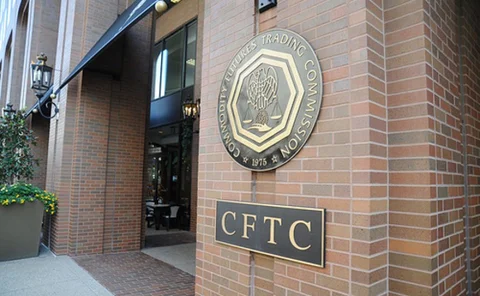Market risk
Actively managing risk culture in energy firms: part two
Cultural failings have played a critical role in many well-publicised energy risk management failures, but risk culture is challenging to monitor and assess. In the second part of this series, Carlos Blanco, Jean Hinrichs and Robert Mark propose a…
Head of metals trading leaves Credit Suisse
Emea power head leaves Citi; Noble makes two new hires; Morgan Stanley hires BAML's Felgate; Ex-Deutsche MD joins consultancy; CME energy chief departs
Energy evolution set to reshape risk management
During the next 20 years, the energy industry is expected to undergo transformational technological change, shaking up traditional patterns of correlation between different energy markets and creating demand for new types of instruments and more…
JP Morgan commodity heads reveal plans for the future
JP Morgan sold its physical commodities business to Switzerland-based Mercuria in October, a major retreat after years of aggressive expansion in energy and metals. But in an exclusive interview, the bank’s new global co-heads of commodities tell…
CFTC slammed for using ‘ancient’ position limits data
Energy firms are criticising the CFTC's proposed rule on commodity derivatives position limits under Dodd-Frank, saying it relies on decades-old data to set spot-month limits
Mifid II must recognise that commodities are different
Mifid II is one of the most significant pieces of post-crisis financial reform, and threatens to engulf commodity trading firms in rules aimed squarely at financial services firms
Knowing your territory is vital for energy firms
Energy firms must operate in many different countries, with a variety of legal systems and cultural traditions. Strong knowledge of these areas is crucial if companies are to avoid being ensnared in a legal and regulatory minefield, writes Vincent…
Commodity trading firms piece together Mifid II jigsaw
Mifid II is certain to have a big impact on commodity trading firms, but market participants say that piecing together the precise effect of the legislation is difficult due to undefined terms and its complex links with other European rules. Stella…
TrailStone's Silbert says the best is yet to come
TrailStone chief executive David Silbert never expected to embark on a career in commodities, but the company he founded in April 2013 is now the talk of the industry, writes Mark Pengelly
Low volatility boosts interest in coal derivatives
Rising activity at commodity trading houses and hedge funds is contributing to high trading volumes in coal derivatives, while some producers are also increasing their involvement in the market
Former CME Group energy head Morsches to leave
Gary Morsches, the New York-based former head of energy at CME Group, is to leave in early 2015, following the appointment of Martin Fraenkel as global head of energy
Mercuria deal was driven by economics, says JP Morgan
JP Morgan's global co-heads of commodities, John Anderson and Michael Camacho, say the bank's decision to sell its physical commodities business to Mercuria was not down to regulatory pressure
Robust valuation and hedging of tolling agreements and physical assets
Krzysztof Wolyniec shows how very robust valuation bounds of tolling agreements can be obtained without modelling the dispatch process or the underlying price process. This flexible method, which uses martingale duality, provides a reliable valuation…
Senators turn up the heat on physical commodities
A key US Senate subcommittee has put the spotlight on banks’ involvement in physical commodities, raising pressure on the Federal Reserve to impose tough restrictions
Official support fails to help Japan LNG contract
The launch of a new forward contract linked to liquefied natural gas (LNG) had been welcomed by the Japanese government amid hopes it might help local buyers manage their risk. But the contract has failed to take off - a sign of the challenges involved…
Enthusiasm for hedging wanes among US airlines
Airline fuel hedging was once a thriving business for bank commodity desks. But now major US carriers are showing less appetite for hedging, while non-bank dealers such as BP and Shell are also muscling in on the airline fuel hedging business. Alexander…
Mifid II commodities impact to hinge on trading venues
The evolving definition of an organised trading facility under Mifid II is worrying commodity market participants due to its critical role in determining whether certain energy trades fall under financial rules
Energy exchanges can share the burden of Remit
It's easy to see why smaller energy trading organisations become frustrated trying to deal with the demands of the European Regulation on Wholesale Energy Market Integrity and Transparency. But exchanges can play a vital role in sharing the burden,…
US airline wins Dodd-Frank real-time reporting delay
CFTC no-action letter giving Southwest Airlines and its dealers extra time to report hedging trades in long-dated oil may lead to broader relief for other hedgers in illiquid markets
Looking back: El Niño boosts weather derivatives
Liquidity in the OTC weather derivatives market has suffered repeated false starts over the years, including one reported by Energy Risk in December 1997 with the onset of the El Niño weather pattern
US energy firms welcome CFTC tweaks to Dodd-Frank rules
Long-awaited move to address ‘seventh prong’ problem seen as positive step by industry groups
Vote now in the Energy Risk Commodity Rankings
Voting is open in the 2015 Energy Risk Commodity Rankings, which rank the top dealers and brokers in the global commodity derivatives market
Commodity leveraged ETFs: Tracking errors, volatility decay and trading strategies
Commodity exchange-traded funds (ETFs) and their leveraged counterparts are a significant part of the growing ETF market. Kevin Guo and Tim Leung examine their tracking performance, with a focus on the phenomena of volatility decay and realised effective…
Quant ideas: Liquidity in commodity risk management
Limited liquidity is a problem that arises frequently when managing large assets, such as power plants or storage facilities. Krzysztof Wolyniec shows how standard financial models tend to overstate the cashflows of these facilities and explains how…






















